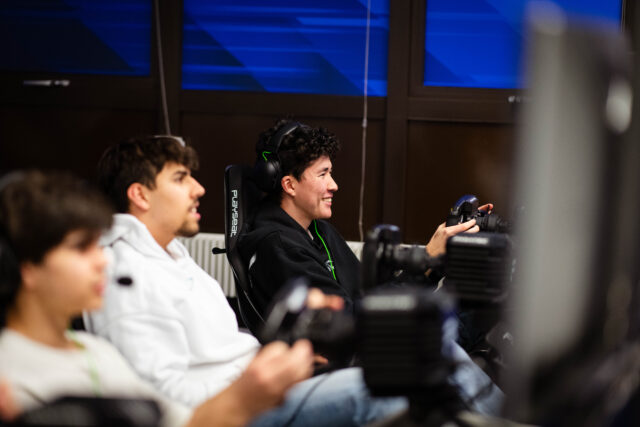28/11/2024
What skills do our children need to thrive in the future?
Dr Robert Harrison, Director of Education and Integrated Technology at ACS International Schools
Today’s students are facing complex challenges, including rapid social change, changing labour markets, emerging technologies, and global climate change. Against this backdrop of uncertainty, what skills do children and young people require if they are to be ready for the world they inherit from us?
At ACS International Schools, we believe that the future is not defined by trends or challenges, but by how we engage them. There’s no surprise that future-ready skills include competence managing self, working collaboratively with others, living resiliently, exercising empathy, and directing their own learning over the course of a lifetime.
Future Ready Skills
At a recent Future Ready Forum, we welcomed Applied Futurist Tom Cheesewright, who highlighted vital skills (“Three ‘C’s”) that students will need to succeed in the workplace and drive forward positive change.
Curation
As critical thinkers, citizens and workers must be able to discover and evaluate information. As importantly, we have to be able to identify gaps in our knowledge and consider how we can fill them without falling prey to misinformation, falsehoods, and fake news (digital media literacy). For example, in the workplace, employees need to be able to reflect on what they don’t yet know about markets and competition, find reliable data, and effectively apply it across widely different contexts.
Creativity
Creativity is a fundamental human gift and discipline—a skill that can be cultivated and taught. Creativity includes a broad spectrum of practices—learning to make and test things, failing, mixing and recombining products, prototyping, innovating iteratively, building on each other’s ideas, imagining better. Practice, repetition and refinement are more important than strokes of genius.
Communication
To be successful, people must be able to sell their ideas, to colleagues, customers, and the wider community. Communicating ideas efficiently and persuasively is an increasingly valuable human competence for most roles in business and society at large. Effective communication goes beyond rational argument to include authenticity, precision, and beauty.
Skills for the workplace
These skills are just some of the key competencies that young people will need to succeed in tomorrow’s workplace. While academic qualifications are still important, today’s employers are looking for candidates who are also able to apply their creativity and communication skills in situations that haven’t been encountered before.
This echoes findings from our research, Education for a World of Opportunity, which surveyed a range of Small and Medium Enterprises (SMEs) on what they valued in terms of workplace skills. (SMEs represent 99% of the business population in the UK). Subject specific knowledge takes a clear second place behind problem solving, communication, critical thinking, and reflection skills.
What can schools do?
So, what can schools do to ensure our graduates are ready a new world of work in the age of AI? How do we help students not only acquire knowledge, but develop social-emotional intelligence and become authentically human? Where can we offer experience and inspiration that whet their appetites for optimistically engaging with a world filled with opportunity?
A broad and balanced curriculum is a good place to start. Any instructional design that helps students learn practical skills in a supporting learning environment, where they are encouraged to explore, play, experiment and develop a real sense of self. IB programmes, the Career-related Programme (CP) in particular, offer students real-life learning opportunities that enable them to put their learning into action in real contexts beyond the classroom. Partnerships with business and industry are key. Action with and for the wider community offers limitless possibilities to learn.
The role of educators
Today’s world is characterised by disruption and high-frequency change. Educators have professional and moral obligations to prepare our students not only for their roles in national and local economies that are continually emerging, but also to fulfil their uniquely human role in technology-enhanced futures. The skills that students need for economic success also give them keys to self-fulfilment.
As Tom has written, these skills “allow us to expand our own abilities, feel the reward of making something new and communicating our value to others—whether your objective is financial, self-development, or about growing your role in society.”
Why not all three?





